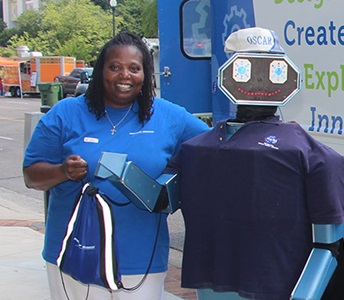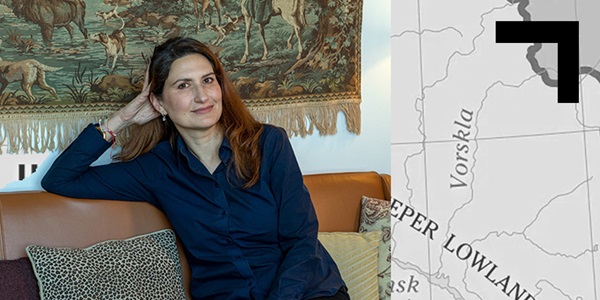Since a young age, I wanted to protect the world.
Finding Stability
By Seth Nuckols, as told to Steve Lamb

As a kid, I dreamed of becoming an FBI agent. But after finishing high school, I realized that I needed to cultivate better discipline in my life, so I left college to join the U.S. Army. I became an Army counterintelligence special agent, keeping U.S. classified information safe. As a badged federal agent for over 20 years, I conducted sensitive investigations related to espionage, treason, sedition and terrorism.
Missions were often intense. I’ve deployed five times — four in combat — and not everyone around me returned home. I learned that I couldn't dwell on those memories; it was very hard to recover from them.
While serving in Afghanistan, I woke up one morning with a throbbing headache. I went for an evaluation at Bagram Air Base hospital where doctors said I had the initial stages of PTSD. I was officially diagnosed in 2006 after returning to the U.S., but continued to serve and deploy.
In 2021, I was assigned to a base in the US, where I connected with an Army therapist who was trying new healing methods that had been developed since my initial diagnosis. He asked me to write the story of my time in Iraq and on other missions as if I was still deployed. I was skeptical, as I’d tried something similar before and it hadn’t worked. Even so, I started writing and I found it therapeutic.
After that first story, I continued writing. A year later, while drafting my third story, I medically retired from the Army, and I joined Northrop Grumman as a facility security officer in 2023. I’ve continued writing for my well-being, and it gives my family and friends insight into what service members really see.
It also allows me to keep the memories of friends I’ve lost, both on deployments and to mental health challenges. I've personally known or worked with over 70 service members who died by suicide. They were not always able to get the help they needed. It became my passion to do that.
I attended training at Northrop Grumman to become certified in Mental Health First Aid at Work. I can serve as the first line of support to respond to an individual who is in distress and connecting that person to a professional mental health provider. I’ve used my training at Northrop Grumman, including working with our VERITAS employee resource group, to truly listen and understand. This is such an important link in helping someone seek mental health support. I have also been able to find the right words to discuss the importance of talking about suicide and connect our members with NGCare and Veteran support resources.
Many who died by suicide had the same background, career and education as me. Sometimes, I question, “How am I different from those who haven’t made it?” I’m not sure there’s an answer to that question, but I do know I have to continue moving forward.
I rely on my training, but also on my faith, acknowledging that I can't go through life alone. There's always someone else who is looking out for us, wanting to help.
And I think that's why I'm still here — to help others get through troubling times and find stability.
Learn more about Northrop Grumman’s NGCare — which offers resources for employees and their family members, including confidential counseling, mental health resources, work-life solutions, family care support and more — and our VERITAS (Veterans, Employees and Reservists Inspired to Act and Serve) employee resource group.
Life at Northrop Grumman
Your work at Northrop Grumman makes a difference. Whether you want to design next-generation aircraft, harness digital technologies or build spacecraft that will return humanity to the moon, you’ll contribute to technology that’s transforming the world. Check out our career opportunities to see how you can help define possible.


